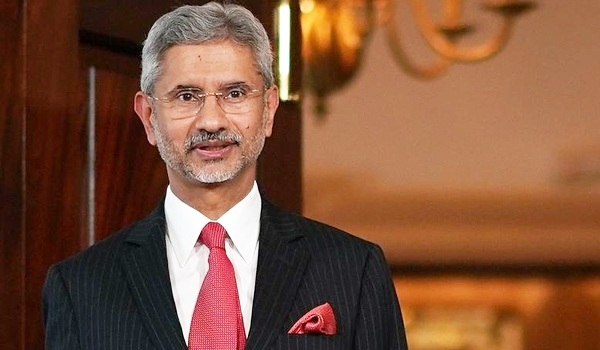impact on ties
| Date :19-Jun-2020 |

MINISTER of External Affairs Dr. S. Jaishankar is more than right to verbalise India’s point of view that the ugly Galwan Valley incident would have an adverse impact on bilateral relations between India and China. And to bolster that message, Prime Minister Mr. Narendra Modi, too, did not mince words when he said that India was fully capable of giving China a befitting reply in any eventuality. The Indian Army, too, did not miss the moment and stated uncompromisingly that the supreme sacrifice of the twenty brave-hearts would not go in vain. The collective message from India, thus, was clear and confident and no-nonsense in nature, indicating willingness to go full distance in asserting national pride.
It is not possible to fathom actually how Beijing took this message from New Delhi. But there is a reason to feel that the Chinese Foreign Minister Mr. Wang Yi made a call to Dr. Jaishankar only after Beijing heard the stern word from Mr. Narendra Modi at the start of his meeting with Chief Ministers of a few States. Mr. Wang Yi reportedly conveyed to Dr, Jaishankar that China was keen on sorting out the issue peacefully. It is during that conversation that Dr. Jaishankar told his Chinese counterpart the behaviour of the Chinese troops would affect bilateral ties. Diplomacy, however, is a tricky ball-game and by the evening of June 17, 2020, Beijing stated obstinately that Galwan Valley was a part of Chinese territory. That communication from Beijing also did not say a word about the heavy Chinese casualties.
That was good enough an indication that Beijing would continue playing its ding-dong diplomacy in an attempt to keep New Delhi confused. It is here that Beijing is making a grave error in its calculations. New Delhi understands every nuance of the Chinese conduct of its military diplomacy -- where it leverages its military capabilities to impact the outcome of the issue. Mr. Modi’s statement conveyed a deep understanding of the issue, which should actually make China sit up and take notice. However, in the given condition in which Beijing finds itself cornered from many sides, its response is less likely to be prudent to respect the details of the current international situation. There is no doubt, however, that China would take foolhardy steps only to its own peril. For, currently, it has no friends in the international arena, thanks to its cranky approach to global concerns. It also stands isolated on the coronavirus front since the world believes that the virus originated in a Chinese laboratory and that Beijing was using it as a test-case on how the world would react to any such overture in future. The Galwan Valley episode -- of not just of the fierce scuffle but also of its illegal entry into Indian territory -- is a very undesirable development from Indian as well as international points of view.
Nobody would be able to understand actually why China is pushing things to such a precipice. In the light of the warmth that informal summits between Mr. Narendra Modi and Mr. Xi Jinping generated in the past 3-4 years, the Chinese conduct is absolutely befuddling. It has had no reason to instigate India in such a shabby manner, when actually it should have been courting Indian goodwill in the given international realpolitik. No matter the unspoken details of Chinese intents, India must respond in the manner it has done so far. Factually, Beijing has left New Delhi with no other choice, but resort to military ways as well besides diplomatic approach. In the long run, China stands to be affected more by the souring of relations with India. Unfortunately, China does not seem to realise this. It also does not seem to realise that India is a no-nonsense neighbour.